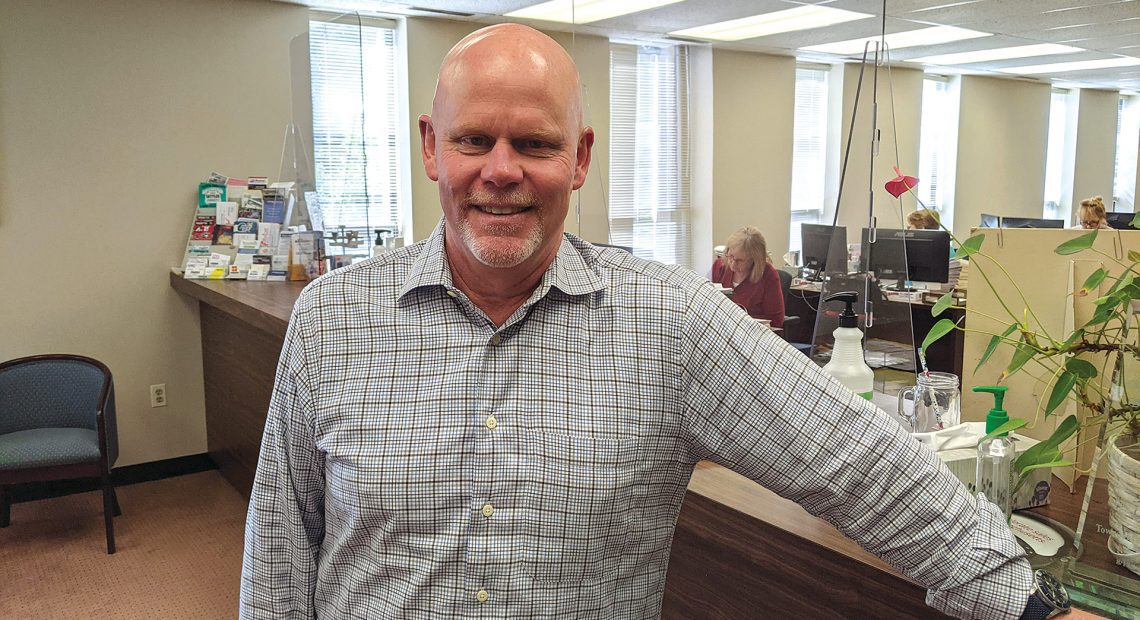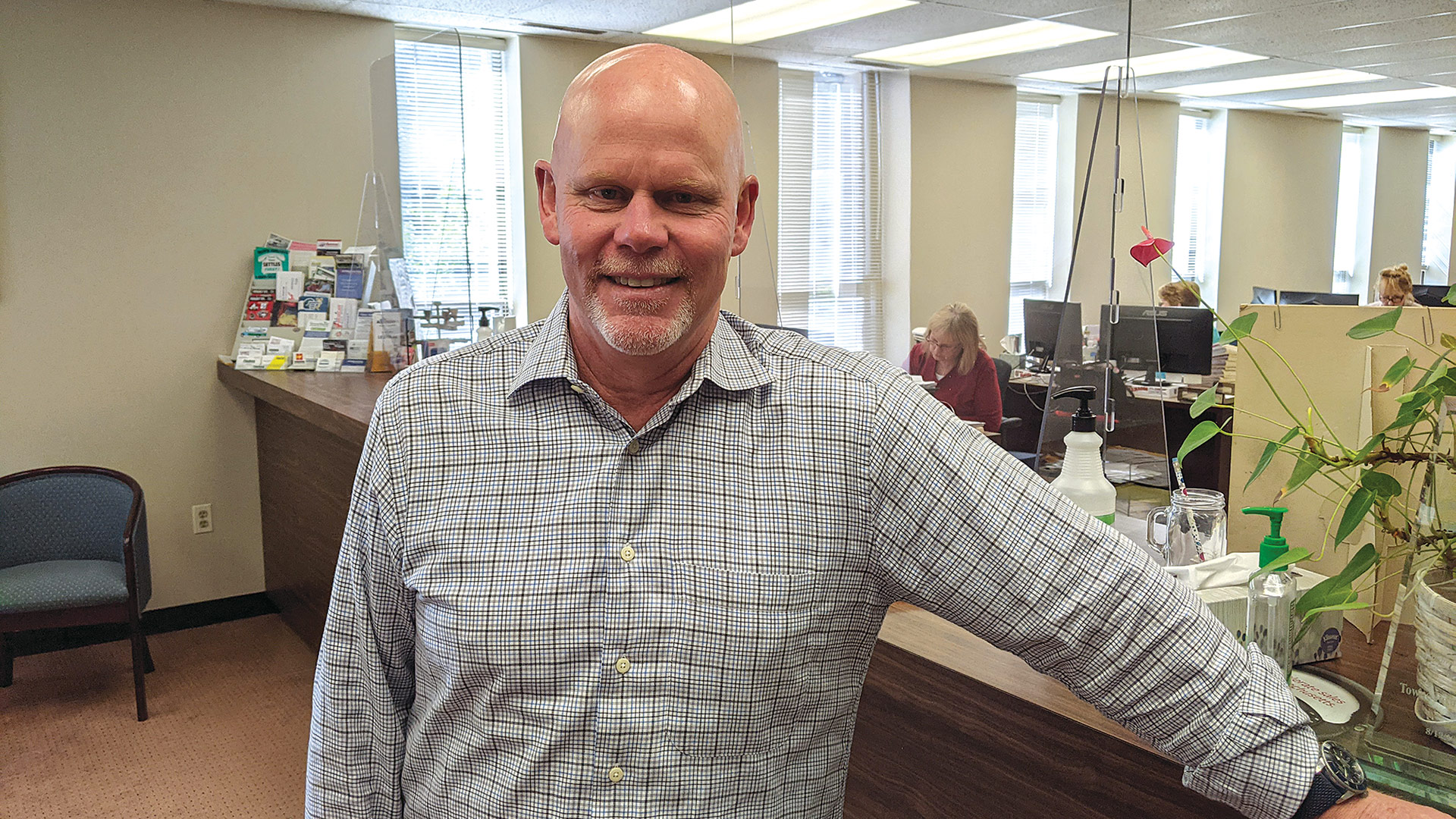The Right Ingredients

The staff at the Ekus Group in the reference library that Lisa Ekus has built over the past 40 years.
The Hatfield-based Ekus Group describes itself as a ‘full-service culinary agency.’ This is a unique niche obviously, one that has been successfully cultivated over the past 40 years, during which time the name Ekus, like the names of many of the authors the company represents, has become known across the country and around the world. Summing up the broad range of services, partners Lisa and Sally Ekus (mother and daughter) say they “bring chefs out from behind the stove.”
If one wanted to gain a full appreciation for how the company started by Lisa Ekus back in 1982 has grown, evolved, and emerged over the past 40 years, maybe the place to start is in what she calls her reference library.
It has become the centerpiece — although there are several of those — of the 250-year-old renovated farmhouse in Hatfield she calls home. She started with a small collection gathered in high school and college, and has grown it to 7,000 volumes, with more added seemingly every week; there’s a pile of books outside her office for reading and possible addition to the collection.
There are works of fiction placed in one small section, but the rest — much like Ekus’s career, and that of her daughter, Sally Ekus, now a partner in this venture — are devoted to food and cooking. The volumes are carefully cataloged and arranged by various subjects, meaning everything from food types to geographic regions, authors to individual countries; she recently added two volumes on Polish cuisine.
“There were agencies that did book PR. But we really honed in on chefs, cookbooks, food companies, and understanding the evolution and growth of what was happening on a very vast global stage.”
The library, like her work to create what have come to be known as ‘culinary celebrities,’ is a passion.
“It’s all organized physically, it goes around the globe by country, and then it goes through our country by region,” she told BusinessWest. “And there’s specialty, single subjects — soup, health and diet, wine … you name it. I’ve read maybe 75% of them and I’ve touched them all in some way.”
When asked what makes a book worthy of placement in the library, Sally answered for her mother. “It has to be … unique.”
That’s a word that could, and should, also be applied to this business, formerly known as the Lisa Ekus Group, but changed recently to reflect Sally’s more prominent role. Indeed, there are few companies like this anywhere, and probably only one in a rural setting like Hatfield. And while the library does a good job of conveying its growth and presence, it doesn’t … well, tell the full story — pun very much intended.
To fully understand, we need to visit other rooms of the house, which is adjacent to the company’s offices and plays a huge role in day-to-day activity.
Like the dining room and its massive table. Here, Lisa Ekus has hosted literally thousands of people for dinner over the years, including culinary celebrities such as Julia Child, Emeril Lagasse, and countless others.
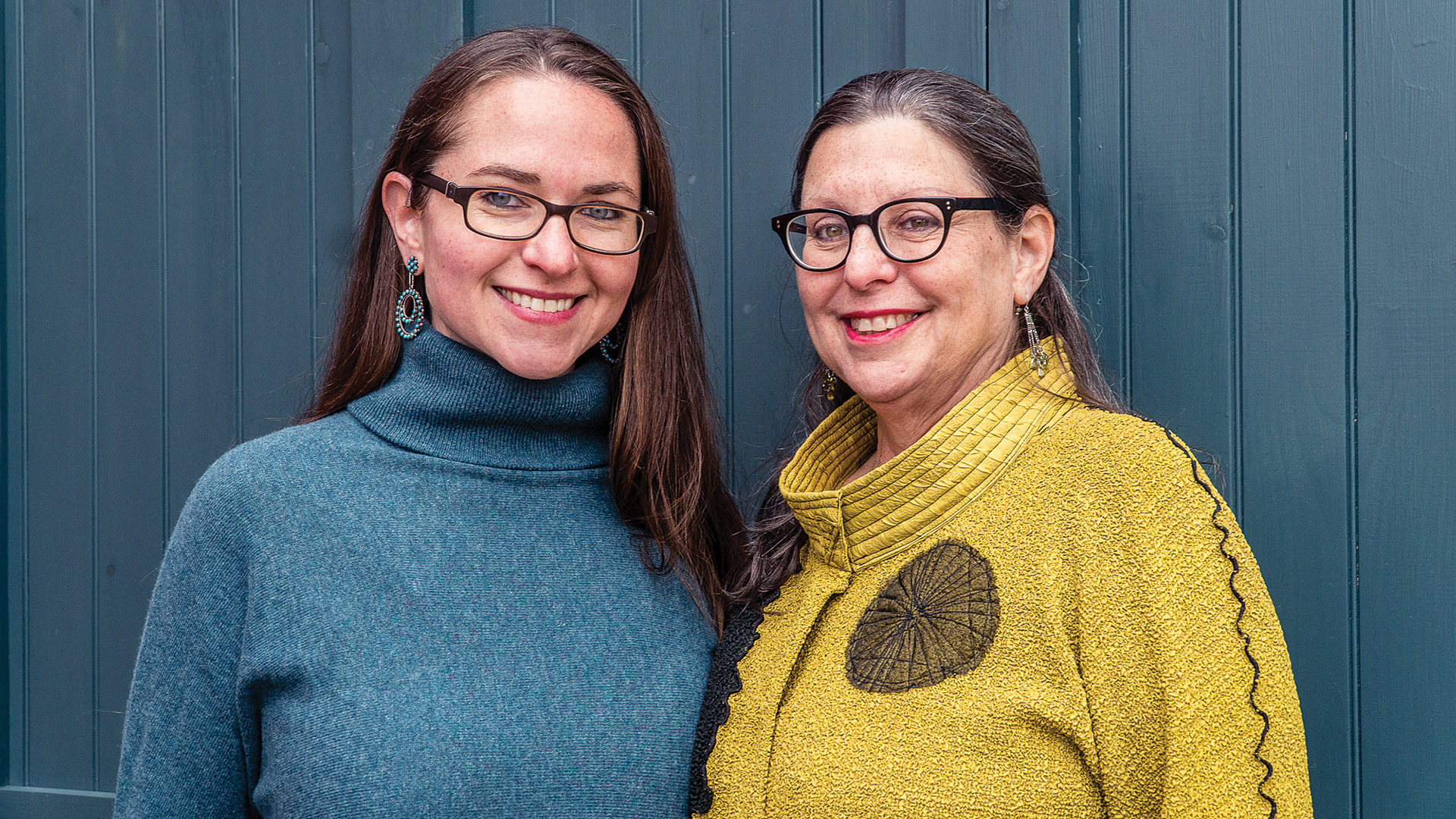
Sally Ekus, left, with her mother and business partner, Lisa Ekus.
Or the nearby kitchen, which doubles as a TV studio where many of these same chefs have mastered the fine art of cooking for a television audience, a business niche that the Ekus Group has cultivated over the years.
Or the large side porch that Ekus added on the property several years ago. Here, she does more entertaining with those who have become celebrities and those who want to gain that status.
Or the Airbnb that she recently opened with the appropriate name Cooks Chateau. As the pandemic has eased and leisure and business travel have returned, she has booked the space for the next several months, and projects that it will eventually become a solid profit center.
Together, these spaces in the Ekus home speak to a hugely successful business, one that continues to add new lines to its recipe for success, such as a virtual “How to Write a Cookbook” course that Sally considers a logical extension of what the company has done for the past four decades (more on it later).
Looking ahead, Sally said the company will continue to evolve and grow, but likely remain a boutique, as in “small” agency that can provide personalized service to its many kinds of clients.
“It’s not ‘here’s a book — let’s sell it. We want to identify the unique selling points and where in the marketplace this might fit; how can we help an author and a publisher articulate what the primary focus and goal of this particular book is. That’s what we do.”
“We have a desire to grow intentionally in a way that continues to support the work that our current team loves to do and also potentially bringing in a handful of new talent to grow things like our agent-representation program and our talent representation, and also continue to buildout our workshops and culinary expertise,” she said.
For this issue and its focus on women in business, we talked with Lisa and Sally Ekus about the first 40 years at this unique business and what may come next. Putting it in perspective, Lisa stated the obvious:
“We have so much fun with what we do; it’s one of the best industries to be in.”
Course of Action
For Sally Ekus, the phrase ‘growing up in the business,’ has perhaps more meaning than it does for most second-generation business owners and managers.
Indeed, since the Ekus home was — and is — also the office, but also the place where countless celebrities and celebrities in waiting came to meet with Lisa Ekus, cook, dine, and chat after meals with her, and Sally was part of all that; she literally grew up in the business — and around people like Julia Child.
And while she fondly remembers what she calls “the good old days,” she came of age, and became part of the business, as the scene was changing, with developments such as blog-to-book deals, online recipes, the rise of self-publishing, and much more.
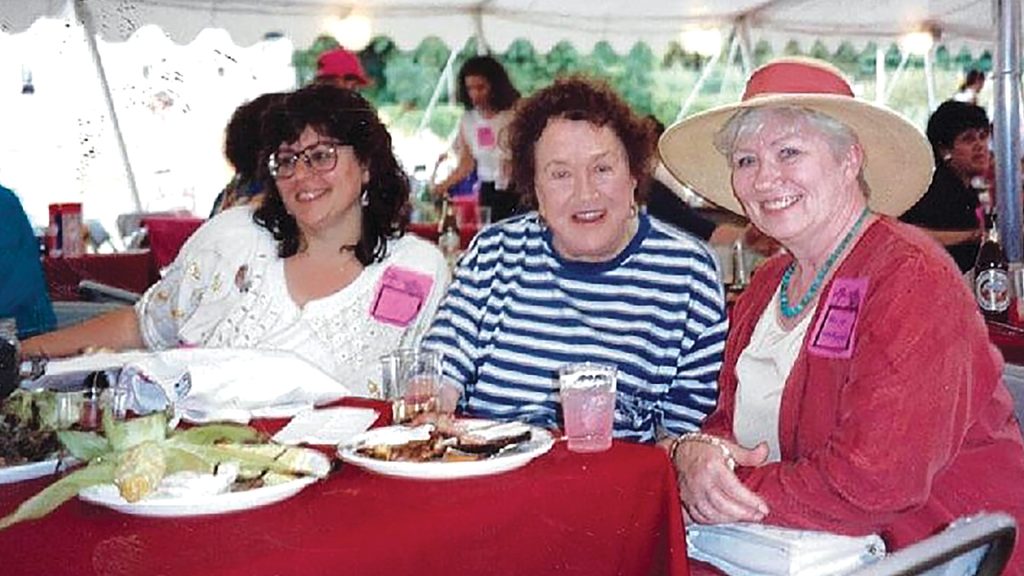
From left, Lisa Ekus, Julia Child, and Irena Chalmers, a noted author and food commentator at one of many gatherings in the backyard of the company’s home in Hatfield.
Today, the company still celebrates the old while embracing the new, and Sally and Lisa are planning the next courses, if you will, for this venture, while continuing to provide the services that have made this company so successful over the past four decades. Summing them up, Lisa said she, Sally, and the assembled team “bring people out from behind the stove.”
By that, she means that the company helps those with culinary skills cultivate a brand while also helping them develop expertise in other areas required to become a true culinary celebrity — everything from writing a cookbook and getting it published, to learning how to cook for a television audience, to effective self-promotion.
While there have been cookbooks for perhaps a century now, there wasn’t, until recently, a focus on the chefs, the authors of these cookbooks, said Sally, noting that the Ekus Group devotes its energies to putting them front and center, and making them, as much as their recipes, the stars of the show.
It’s a package of services that, together, make the company unique and has enabled it to assemble a client list that is a veritable who’s who in the culinary world, with luminaries such as Haile Thomas, Toni Tipton-Martin, Davis Olson, and many others.
Turning back the clock 40 years, Lisa Ekus said she started her company to fill a need for a business that focused on book PR. She moved to the valley from New York City and brought with her an extensive portfolio of connections and experience.
“I developed the business because of, and through, my connections in New York publishing,” she explained. “So, I had a great base upon which to draw clients and get recommendations.”
In essence, she was doing remote work before anyone knew what remote work was, she went on, adding that she loved the lifestyle in Western Mass. and was committed to building a business here and traveling back to Gotham — or anywhere else she needed to go — when needed.
Over the next several years, the company would develop a culinary niche and become, in her estimation, the first and only culinary PR book agency in the country.
“There were agencies that did book PR,” she went on. “But we really honed in on chefs, cookbooks, food companies, and understanding the evolution and growth of what was happening on a very vast global stage. Our niche was putting it forward in book form.
“We worked to put our authors and their expertise out there through the covers of their books,” she went on. “No one had really focused on the personalities, the experts within the categories they wrote about — like Rose Levy Beranbaum and desserts; she wrote The Cake Bible, or Lynn Rosseto Kasper, who founded and was the host of Splendid Table for decades; she was an expert on the Emelia-Romagna section of Italy.
“Books were just put out there,” she continued. “And we really brought the expertise forward on a national level. And I really love personally to understand where someone comes from and what they write about. It’s not simply another book about cookies or Italy or wherever; it’s understanding and taking a deep dive into food.”
Stirring Things Up
While the Ekus Group remains grounded in the principles and services on which it was founded, it has certainly evolved over the years and changed as the times have.
The biggest change has simply been the emergence of food and cooking, said Lisa, noting that, 40 years ago, there were very few celebrity chefs, no television networks devoted to the subject, exponentially fewer cookbooks being written annually, few who knew what veganism was, and far fewer people who would say they are really into the culinary arts.
Starting in the early 90s, things started to change, she recalled, and today the landscape is much different.
“We’re willing to, and want to, explore food origins,” Lisa explained. “We want to say, ‘I’m going to cook an entire Korean meal this weekend, and I’m going to buy authentic ingredients and I’m going to make it from scratch. People have taken up cooking and food as a major hobby, and it’s a huge sector economically in the country.”
Elaborating, she said the food business has transformed itself into the food businesses — hundreds of different types, from importers to retailers to specialty food purveyors.
The Ekus Group has positioned itself to thrive in this environment, said the two partners, through the cookbook, but also a hard focus on serving those who want to be players in this movement, if it can still be called that, be they book writers, bloggers, podcast hosts, or simply those who want to take their culinary skills to another plane.


Top, the kitchen in Lisa Ekus’s home doubles as a studio for training chefs om how to cook before a TV audience. Above, one of the rooms in the Cooks Chateau.
Elaborating, Sally said the company is working with several hundred clients a year and perhaps a few dozen at any given time on specific book projects. Overall, the work involves building their brand, she said, and taking them beyond their first book, although they certainly help many get started.
“Oftentimes, it’s not just one book or the first book, although we love that it starts there,” she explained. “It’s the second, the third, fourth, fifth, and beyond; we help them build their brand through their publishing career.”
Lisa agreed, and said the company helps those at various stages of the book-writing process, from developing a concept, to finding a publisher, to shooting a photo for the cover.
The broad goal is to ‘position’ the book, she went on, adding the Ekus Group specializes in this value-added service.
“It’s not ‘here’s a book — let’s sell it,’” she told BusinessWest. “We want to identify the unique selling points and where in the marketplace this might fit; how can we help an author and a publisher articulate what the primary focus and goal of this particular book is. That’s what we do.”
Moving forward, the company is always looking for different ways to share its expertise in this large and growing market, she went on, adding that this mindset has led to new and different initiatives, such as the online How to Write a Cookbook course.
There are many such courses on the Internet, said Sally, but few if any that bring the Ekus Group’s level of expertise and understanding of what makes a book successful at a time when shelves are crammed with new titles, and more are written every week.
“I realized that we were getting the same questions about publishing, and cookbook publishing in particular, over and over again, whether they’re from our clients, the consults that we do, or just general curiosity in this industry,” she explained. “So a few years ago, I thought ‘how can we extend a core value of ours, which is to be a resource in this industry?’ And I put together this course, which is an extension of our expertise.”
Elaborating, she said it helps answer questions about self-publishing versus traditional publishing, how to stand out, the role of agents, and much more.
Thus far, the course, which features more than 20 “exclusive, insider tips” from Sally Ekus, has drawn considerable interest, said the partners, adding that it complements other services, such as training in culinary media, which ranges from cooking on TV or before a live audience, to conducting a radio interview. Cooking is one skill, said Sally, but media appearances are another … kettle of fish.
“There are a lot of people who say ‘I’m a food expert,’ or ‘I want to be famous and cook and talk on television,’” she said. “But there’s a very specific skill and personality that needs to be cultivated and trained, so we developed this program, which is the first of its type in this space.”
Over the past 40 years or so, hundreds, including celebrities like Lagasse, known for his mastery of Creole and Cajun cuisine, have had such training in that kitchen in the Ekus home.
As noted, countless cooking celebrities have come to Hatfield over the years, and now more are making the trek with the new Airbnb, which, as its name indicates, has a culinary focus.
“People can visit us, whether they’re a client or not, and be inspired, write, cook, visit the library, and more,” said Sally, adding that as more people become more comfortable with travelling, she expects that the space will become popular with those looking for a quiet spot to create — whether it’s with a laptap or on a stove.
Food for Thought
Summing up 40 years in business and the mindset that drives the Ekus Group, Lisa said, “some people eat to live; we live to eat and to celebrate the writers, the authors, the cooks who are doing it so brilliantly.”
And by celebrating them, it is helping them navigate the path to becoming celebrities — on one level or another.
This business is, like those books on the reference library shelves, unique. And as the business marks 40 years, those rooms in the Ekus home show just how far it has come and where it can still go.
George O’Brien can be reached at [email protected]



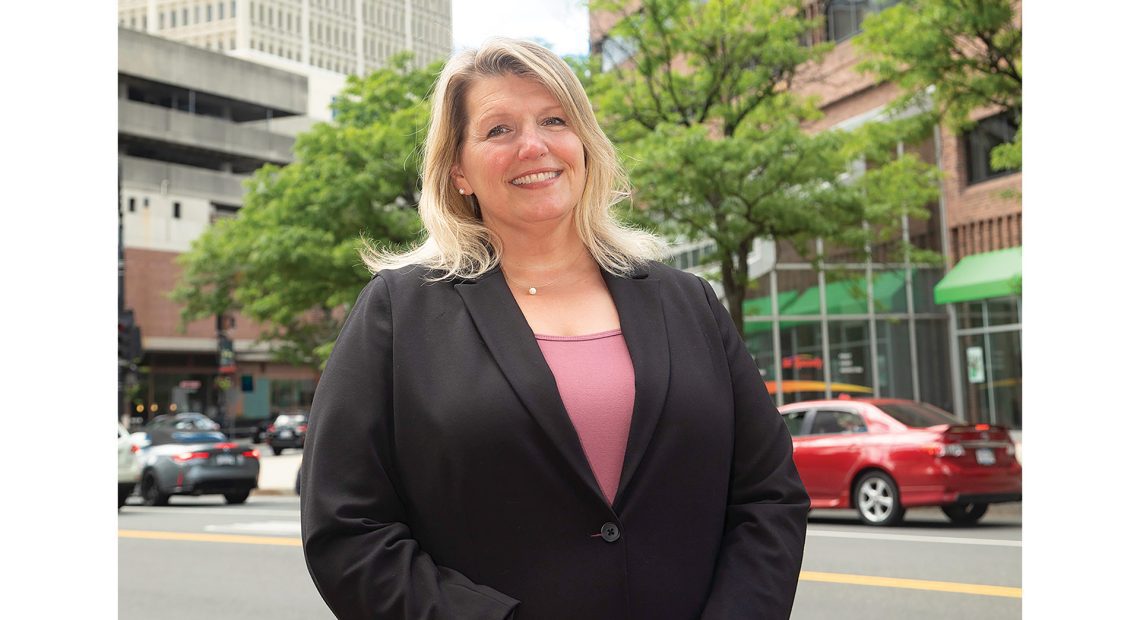
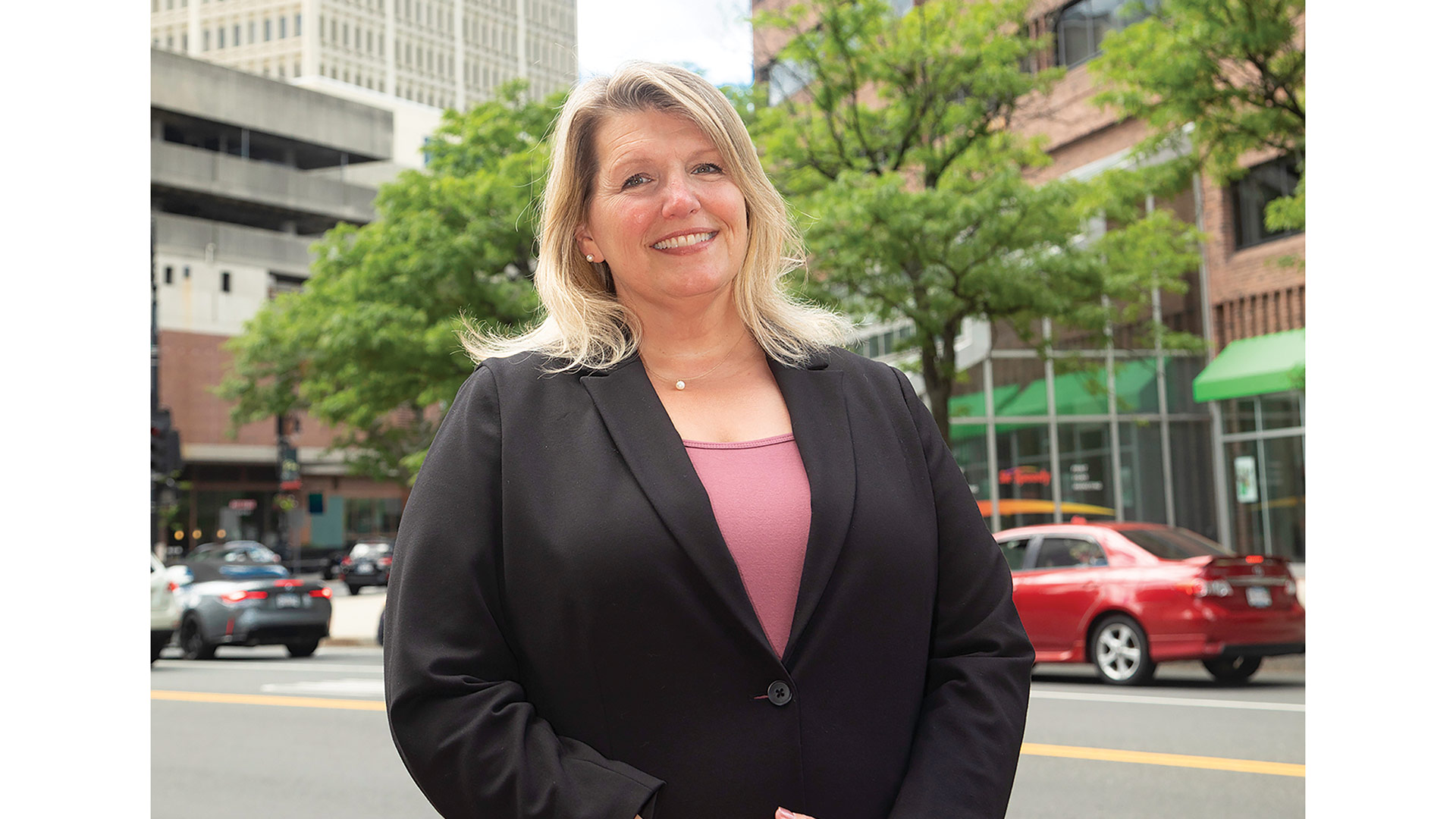







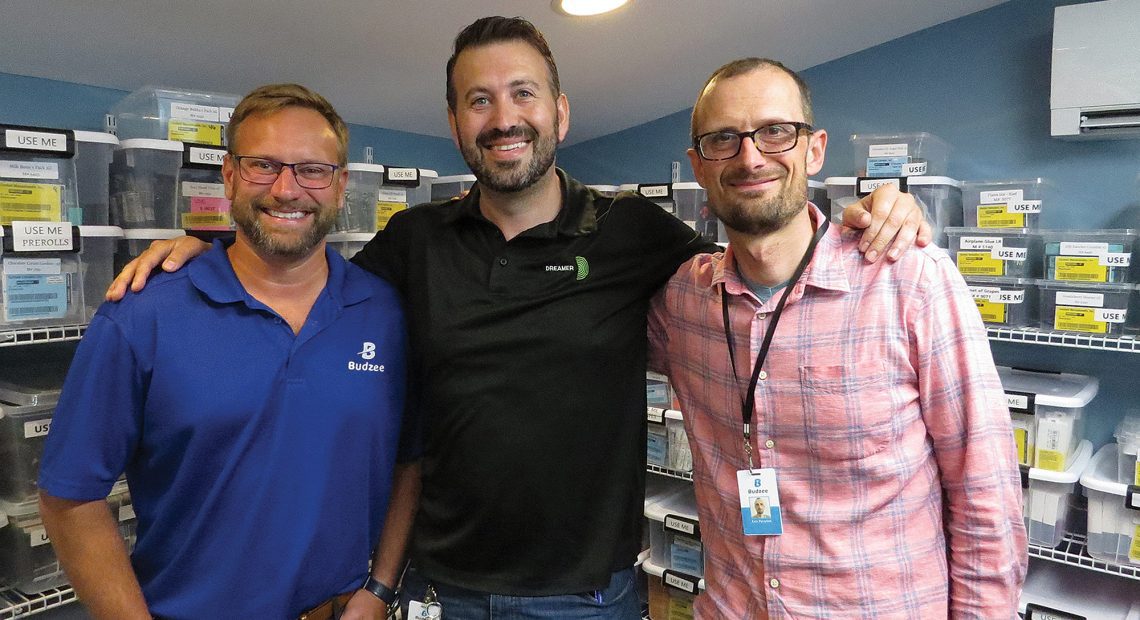
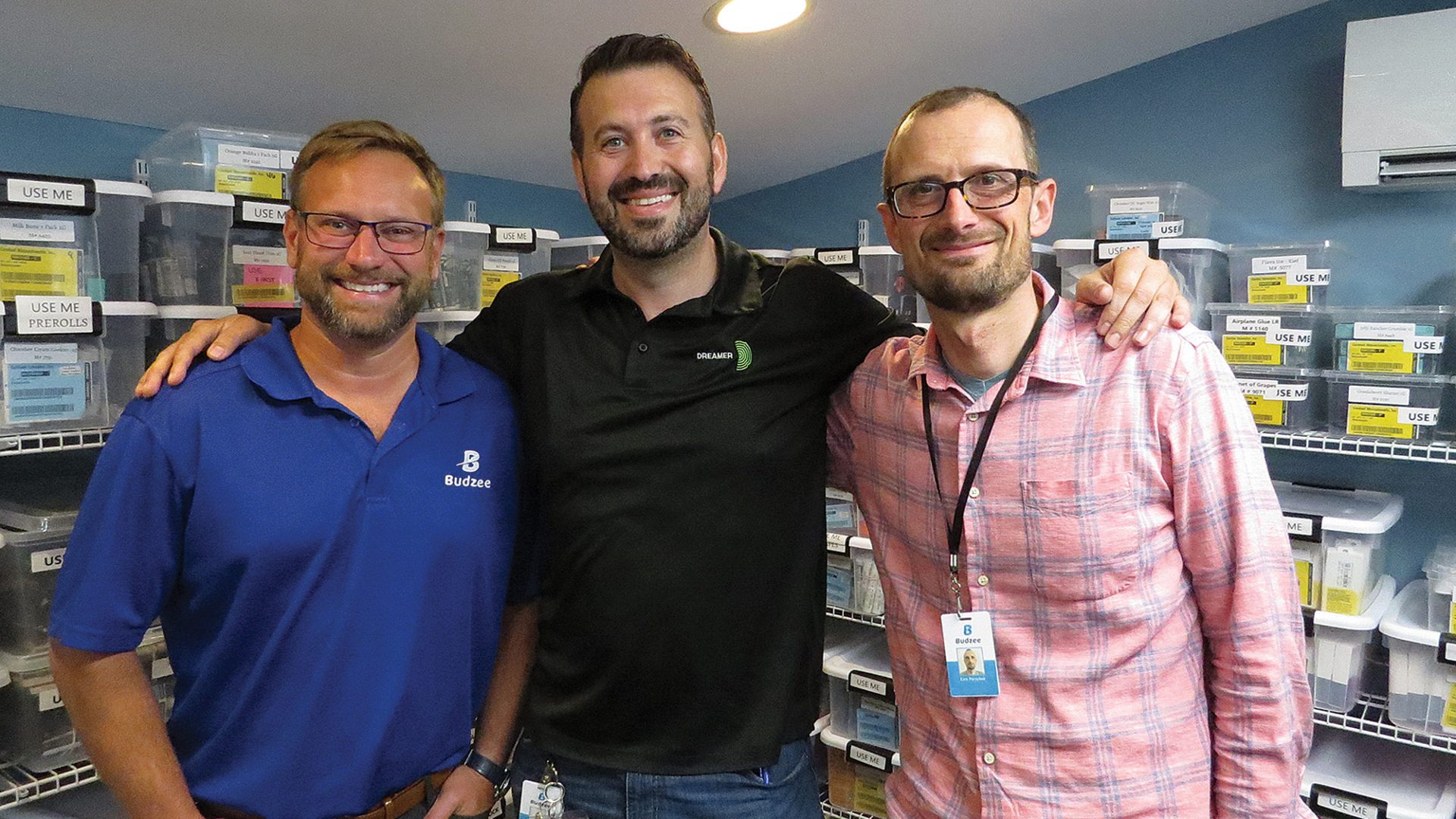
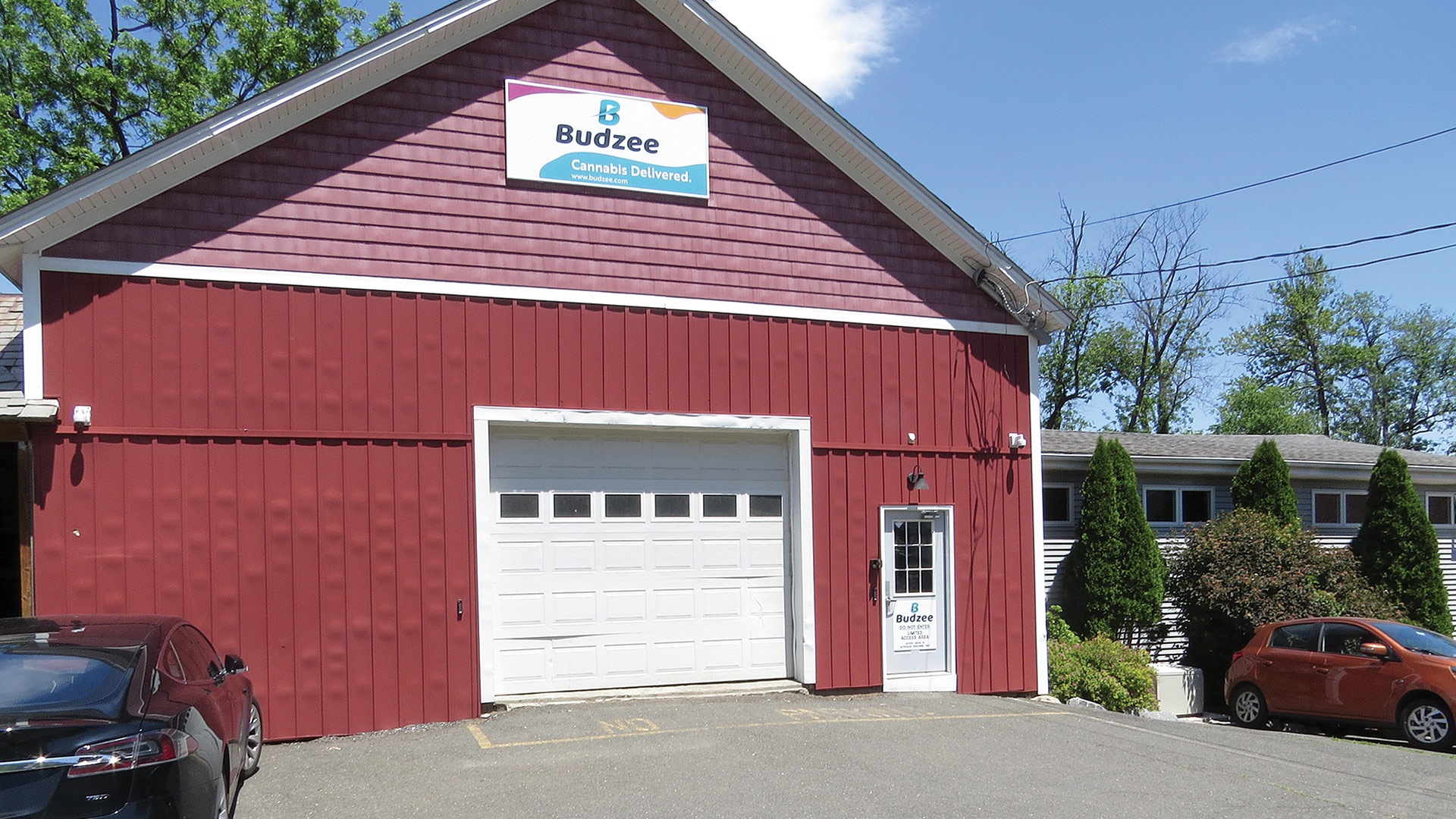



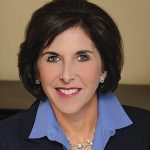 “It is a tough time to be an investor during this scenario but, eventually, the market finds a bottom and investors feel comfortable once again to begin buying, putting an end to the bear market.”
“It is a tough time to be an investor during this scenario but, eventually, the market finds a bottom and investors feel comfortable once again to begin buying, putting an end to the bear market.”